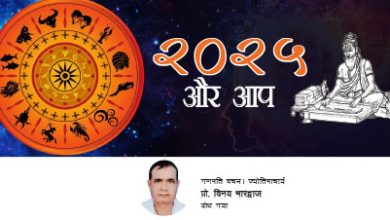Youth and Social Media

Today’s youth can hardly imagine life without social media, realizing that it is an extremely
important part of their personal affairs. Social media platforms have indeed created the most
amazing makeover of interactions among the generation of millennials and others, from
harboring a bond with one’s relatives and intimates to broadcasting news and entertainment.
According to the data gathered from Indian Healthcare Institutions, more than 90% of youngsters
from the bracket of age 18 and 29 are regular social media users across all platforms. By
dissecting the terms “social” and “media,” one may determine that they refer to a social media
platform’s mass communication mechanism. Even while social media has many advantages,
certain hazards and difficulties should be carefully considered.
Young people now view it as an irreplaceable addiction, something they cannot live without.
Teenagers, sometimes known as “Gen Z,” are glued to their phones and barely engage with one
another during huge events. Not only do they do this at that very moment, but they also constantly keep themselves “updated” from the moment they get up until they go to bed. People are rapidly missing out on personal connections as a result of this process, which is extremely important to life.
Today, there is an obsessive fixation with counting how many people like or comment on a post to feel validated. People may feel inadequate in this environment if their friends’ or acquaintances’ photos receive more likes than their own.
Additionally, data from healthcare facilities indicates that there has been a discernible rise in
mental health problems among young people, which is partly related to the overuse of social
media. According to a National Institute of Mental Health and Neurosciences (NIMHANS)
study, teenagers in India are more likely to experience anxiety and despair when they use social
media (Source: Longitudinal research studies (ecu-mental health services transformation, India,
2020) that a co-creation program that involves a range of public, private, and nonprofit
organizations as partners with common goals can be a key driver of transformational change.
While social media could upgrade feelings of social disconnection and loneliness, this is one of
the ample worries about this problem.
Studies have demonstrated that overindulgence in social media can result in feelings of
loneliness and inadequacy as people compare their lives to the well-controlled portrayals that
these platforms provide, despite the seeming connectedness that these platforms appear to
enable.
Moreover, it is also believed that social media networks have a link to the distribution of
unreliable information, especially health matters. Information aimed at the youth population may
be the medium for disseminating misleading information, thus precipitating youth to make
detrimental decisions and perform in an unhealthy manner.
The Indian Council of MedicalResearch (ICMR) released a paper that emphasized the need for coordinated measures to counter the transmission of inaccurate information and the negative effects that misinformation communicated through social media channels effects on the community’s health (Source: It is a pluralistic and multicultural society, highly sensitive to changes like moral and cultural values, which has a great impact on social environment (ICMR, 2019).
Online social media brings about rather a challenge of whether they promote the well-being of
young people even though it creates a world full of opportunities for connection and self-expression. Hospitals in India have seen a worrisome trend: social networks are becoming a
rather complicated mental health resource for the younger generation with the invasion of social
networking into people’s lives.
Nonetheless, as youths work along to understand the ethical use of social media, they will be empowered on how digital literacy could enable them to use social media while at the same time maintaining a healthy body and mind in the ever-changing digital world.
The stories that grandparents used to sit with their grandchildren to tell are only stored in old
memories, and the word youth indicates mainly social networks.

Final-year undergraduate student of Commerce at
St. Xavier’s College, Kolkata.







